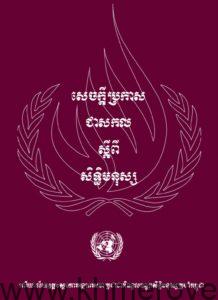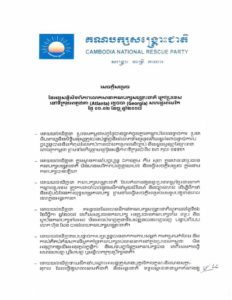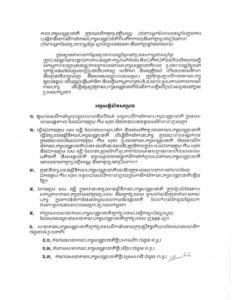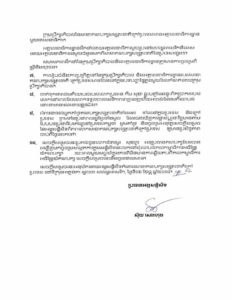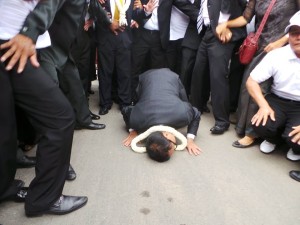How Vietnam lost and China won Cambodia
But the question remains whether Cambodia is moving closer to China at the expense of Vietnam, or is the CPP moving closer to the Chinese Communist Party (CCP) at the expense of the Vietnam’s Communist Party? Beijing is now offering the same party-to-party exchanges and “soft power” roles that used to be exclusive to Hanoi.
More civil servants and ministry officials are traveling to China on visits to observe how politics operates there. Most ministries have signed bilateral agreements to boost joint cooperation. Beijing has also funded new think tanks in Cambodia, and is even paying for Cambodian journalists to visit China to study alongside their Chinese counterparts.
Thanks to scholarship programs, more than 1,000 Cambodians have now studied at Chinese universities, many of whom will go onto hold positions of influence. Most are likely to return imbued with China’s outlook on world affairs, in which Vietnam often plays the role of adversary, especially in regards to the South China Sea.
In December, China’s Foreign Minister Wang Yi pledged more support for youth exchanges programs when he met Hun Many, one of Hun Sen’s sons who serves as president of the Union of Youth Federations of Cambodia, a CPP-aligned organization.
Another explanation of shifts in party-to-party relations between Cambodia and Vietnam is the supremacy of Hun Sen over the CPP. Analysts say that CPP grandees, like the late Chea Sim, the party’s president between 1991 to 2015, were avowedly pro-Vietnam.
Interior Minister Sar Kheng is another senior CPP official who is said to still have very close ties to Hanoi, though his control over the party is certainly not as significant as Hun Sen’s. The death or fading influence of such pro-Vietnam officials has allowed the CPP to rethink its foreign relations, analysts say.

Hun Sen (R) with Interior Minister Sar Kheng. Photo: AFP/Tang Chhin Sothy
“At least since 2008, Hun Sen has held almost all the cards in the CPP. Hun Sen was initially balancing between Vietnam and China. His decision to move closer to China was backed by the CPP because Hun Sen effectively is the CPP,” says Chambers.
There are also clear changes in military-to-military relations as China’s armed forces form even closer relations with Cambodia’s – possibly making Vietnam’s military ties less important in the process.
The two sides now hold regular joint training exercises, dubbed “Golden Dragon”, and Beijing invites senior Cambodian defense officials on state visits. This has become even more important after Phnom Penh postponed, for an undisclosed time, joint training operations with the US military, which is forming increasingly closer ties to Vietnam’s armed forces.
In recent years, China has also pledged hundreds of millions of dollars to support Cambodia’s military, including an additional US$130 million it provided last year to the defense sector. China also pledged US$2.5 million last year to help clear unexploded ordnance left behind by the Khmer Rouge, a donor area that used to be provided mainly by the US and Japan.
In November, this journalist co-authored a report for Asia Times on rumors that China was lobbying to build a naval base in southwest Cambodia, and correctly predicted the issue would be raised by senior US officials, including Vice President Mike Pence, when they attended Asian conferences at the time.

Cambodian naval officers during a sea drill. Photo: Wikipedia
Hun Sen and other senior Cambodian politicians have spent the last two months denying the allegation.
When he visited Vietnam in December, Hun Sen told his counterpart Nguyen Xuan Phuc that the report was “fake news, lying news and destructive news,” while repeating his oft-stated rebuttal that “the constitution of Cambodia does not allow any foreign military bases in the Kingdom.”
Continue reading
